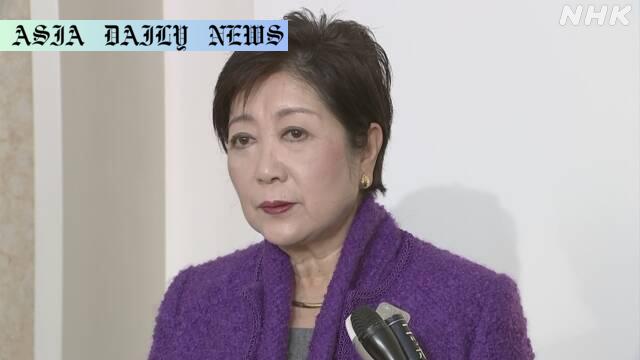Tokyo water fees will be made free for households this summer, reducing financial burdens and promoting air conditioning use to prevent heatstroke.
- Key Point 1: Tokyo will waive basic water fees for all households this summer to tackle inflation and promote air conditioner use.
- Key Point 2: Households can save $35 over four months, with basic fees determined by water pipe diameter.
- Key Point 3: The initiative aims to prevent heatstroke during extreme summer heat, aiding 98% of Tokyo households and businesses.
- Key Point 4: 36.8 billion yen budget proposal to fund this public relief measure will be presented to Tokyo’s assembly in June.

Introduction: Tokyo Tackles Summer Heat and Inflation with Water Fee Relief
The Tokyo Metropolitan Government has announced a groundbreaking and timely initiative to waive the basic water fees for households throughout the summer months. This decision comes as part of ongoing efforts to alleviate the financial burden of inflation while also encouraging safe behavior during extreme summer heat. By waiving basic water charges for four months, starting in June or July, the government aims to make air conditioning usage more accessible, thereby reducing the risk of heatstroke among residents. The total cost of this relief plan is estimated at 36.8 billion yen, or approximately 255 million dollars, and it will provide tangible financial relief for millions of households.
Impact of the Measure on Tokyo Residents
This initiative will provide substantial financial relief for approximately 8 million households and businesses across Tokyo’s 23 wards and 26 other cities in the Tama region. For individual households, the waiver could result in monthly savings ranging from 860 yen to 1,460 yen (roughly 6 to 10 dollars), totaling around $35 over the program’s duration. With inflation leading to higher utility and living costs, the waived fees can ease the financial strain on families, particularly those who may otherwise hesitate to use air conditioners due to energy expenses.
Promoting Heatstroke Prevention and Public Safety
Japan faces rising temperatures and increasingly frequent instances of heatwaves during summers. During such periods, using air conditioning is one of the simplest and most effective ways to prevent heatstroke-related illnesses. By covering basic water fees, the Tokyo government is sending a strong message that encourages residents to prioritize their health and safety without the additional worry of financial constraints. This dual approach—financial ease coupled with public health awareness—reiterates the government’s focus on creating a safe living environment for its population.
Budget Proposal and Implementation
To implement this significant public relief measure, the Tokyo government will submit a supplementary budget plan to the Metropolitan Assembly in June. The estimated 36.8 billion yen required will include subsidies, particularly for municipal governments in areas outside the Bureau of Waterworks’ jurisdiction, such as Musashino, Akishima, and Hamura, as well as island regions and Hinohara Village. This inclusive approach ensures that residents in all areas, regardless of administrative oversight, benefit from the program. Governor Koike Yukiko expressed optimism that this initiative would positively impact household finances and allow families to live with greater security amid inflation and record-breaking summer heat forecasts.
Broader Implications of the Initiative
This program also showcases the Tokyo government’s proactive response to current socio-economic challenges. By acknowledging the interplay between inflation and climate-related risks, Tokyo is setting an example for how urban centers globally can respond to dual crises with innovative policy measures. Furthermore, this move highlights the advantages of integrating public health objectives into economic relief programs, ultimately laying the groundwork for more comprehensive urban governance.
Conclusion: A Forward-Thinking Approach to Sustainable Living
The Tokyo government’s decision to waive summer water fees is both timely and impactful. In addressing the dual challenges of inflation and climate risks, this initiative not only reduces financial strain but also promotes healthier lifestyle choices. With an inclusive approach spanning urban and rural regions, it stands as a model policy for tackling contemporary issues through practical and empathetic governance solutions.



Commentary
A Commendable Step for Public Welfare
The Tokyo Metropolitan Government’s decision to waive summer water fees serves as an exemplary case of prioritizing public welfare during challenging times. By addressing both financial insecurities and public health, this initiative reflects a well-rounded approach to governance that is both empathetic and forward-thinking. The coupling of economic relief with the encouragement of air conditioner use underscores Tokyo’s commitment to safeguarding its citizens as temperatures and living costs rise simultaneously. Residents, especially those in lower-income brackets, will no doubt find this measure instrumental in navigating the soaring summer heat without added financial stress.
Emphasizing Health and Safety Amid Climate Challenges
One of the most striking aspects of this policy is its focus on preventing heatstroke, a serious yet common hazard during Japan’s scorching summers. By ensuring that essential needs like water costs are one less thing for families to worry about, the Tokyo government is promoting a healthier and safer lifestyle for its residents. This is particularly commendable in the context of climate change, as prolonged heatwaves become more frequent and dangerous. The initiative not only responds to an immediate need but also contributes to long-term public safety and awareness about coping with extreme temperatures responsibly.
A Blueprint for Urban Policy Innovation
Tokyo’s water fee waiver initiative can serve as a valuable blueprint for other cities around the globe. By directly targeting two key stressors—inflation and climate-related risks—this policy is an example of how municipal governments can act swiftly and inclusively to mitigate crises. It’s fascinating to observe how a simple act, such as waiving water fees, can achieve such broad and impactful results. As cities navigate an increasingly volatile world, policies like Tokyo’s provide a tangible demonstration of what proactive, compassionate governance looks like.